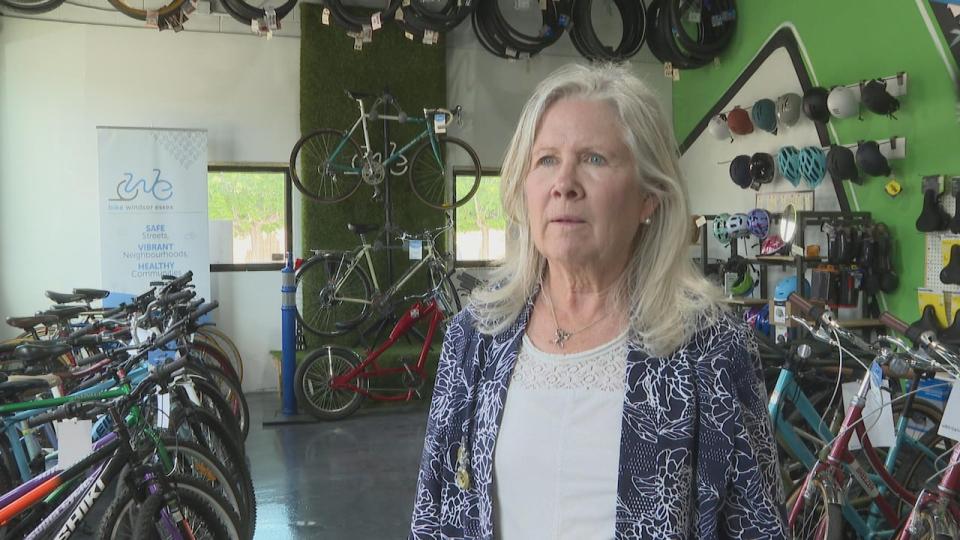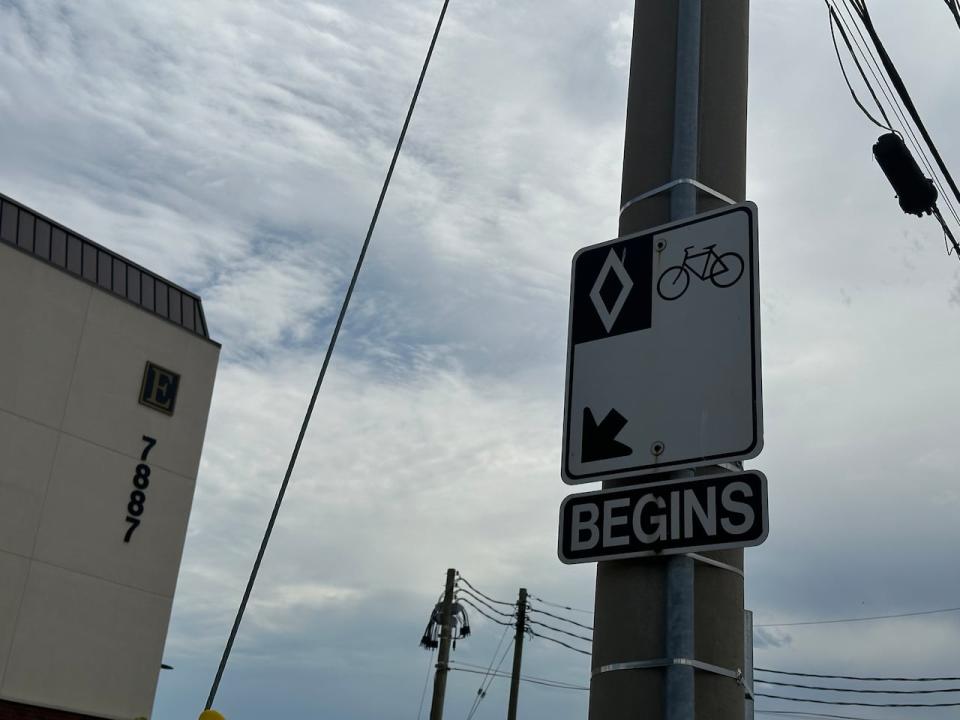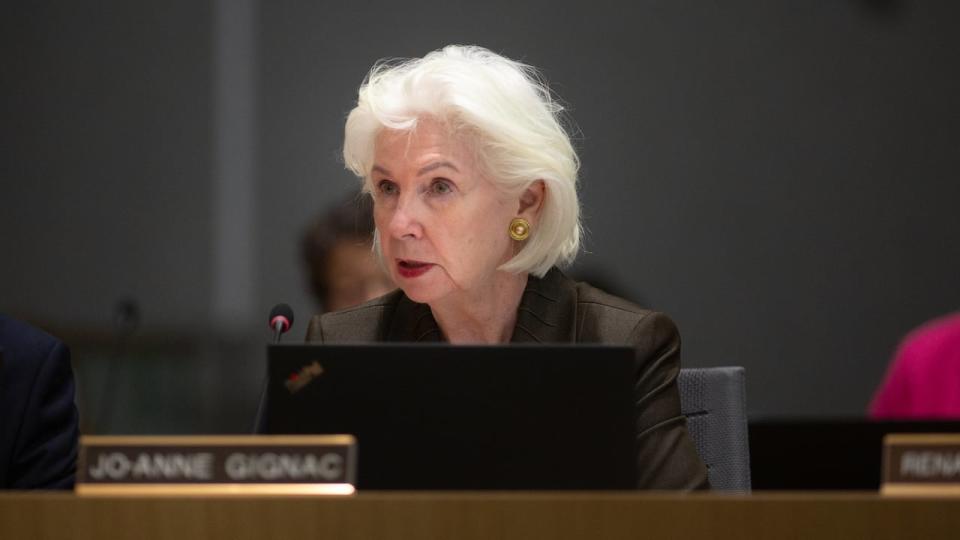Cyclists in Windsor demand safer streets as police continue to investigate recent death
As Windsor police continue to investigate a collision that killed a cyclist over the long weekend, bikers in the community want the city to do more to prioritize cycling infrastructure.
Police have yet to identify the cyclist who died in the collision, which happened Sunday afternoon at Lauzon Road and Edgar Street. Police said a vehicle travelling northbound on Lauzon hit a cyclist travelling westbound from Edgar to Lauzon. The cyclist was transported to hospital where he died from his injuries, according to police.
In an email to CBC News Tuesday afternoon, police said they expect to lay charges.
This recent death has some city cyclists demanding more education and acceptance of people on bikes, as well as more action from the municipality to implement cycling infrastructure.
Joey Desolock, who uses an e-bike as his main mode of transportation, says he doesn't know the cyclist who died, but the incident left him feeling a little shaken.
"That exact same intersection, I've had close calls," he said. "It makes you want to think twice almost.
"At the same time, I have no choice, like that's my way of getting around."
His friend, Dylan Hebert-St.Pierre, also uses an e-bike to get around. He says he's almost been hit "numerous times" at the corner of Lauzon and Edgar.
"People screaming at you to get off the road or get on the sidewalk," said Hebert-St.Pierre.
"Drivers don't seem to care, they just feel like they own the road and that's it. They're driving in the cycle lane, they don't pay attention."

Hebert-St.Pierre and Desolock both say that while the city has made small steps to improve cycling infrastructure, it still has a long way to go. In particular, they want to see the city prioritize its Vision Zero policy.
The policy looks to make roadway changes to eliminate deaths and major injuries in traffic collisions.
"The dialogue is a good start, I feel like we should be beyond that at this point, lives are at stake," he said.
Vision Zero action plan adopted in January
The city adopted a 42-step Vision Zero action plan in January.
Riverside councillor Jo Anne Gignac says that the city has been addressing cycling concerns over the years and making improvements.
"Everybody wants to see these things done quicker, but it's a function of evaluation from administration in terms of road width, where we can do these things safely," she said.

She points to things like red light cameras, adoption of safety zones and the city looking at extending the bike path on Riverside Drive as projects that have recently moved forward. She says they are currently collecting speed data across the city which will inform next steps.
Gignac says she continues to advocate for bike paths that connect her ward with downtown and the west end.
But one cycling advocate says she doesn't feel like much has been done to actually make the streets safer for cyclists or pedestrians.
"I would argue that our streets aren't much different than they looked in the 1980s. We still have very wide roads that encourage drivers to speed," said Lori Newton, executive director of Bike Windsor Essex, a non-profit that sells and repairs bikes.
She says the city urgently needs to look at ways to slow down the flow of traffic and signal to drivers that they need to be on alert for other road users.
In particular, she says she'd like to see speeds reduced to 40 kilometres per hour in residential areas, more speed bumps and protected bike lanes or ones that have clear bike symbols painted on them.
The city recently decided against reducing speed limits to 40 km/hr. Gignac says when they looked at data from other municipalities it wasn't a measure that made sense without other traffic calming measures like speed bumps.
"I think we have to be realistic in terms of adopting measures that are going to actually make changes," said Gignac, adding that no matter what mode of transportation people use, they will still get hurt if hit by a vehicle going 40 km/hr.
Newton also points to council's recent decision to kill the Wyandotte Stree road diet — which looked to replace one lane of traffic in each direction with on-street parking and protected bike lanes along stretches of Wyandotte Street — as a step backwards.

Cyclists want to see cultural shift
Desolock says that cyclists shouldn't feel like they have to "legitimize" their mode of transportation, but believes a long-standing car culture in the city has made people averse to other road users.
In order to protect himself, Desolock says he often takes on defensive cycling. He's also added an a horn and mirror to his bike, as well as a 360 camera on his helmet.
He started a Facebook group that looks to push forward the conversation around Vision Zero and has started posting to it more in the hopes it will make people more aware of sharing the road with cyclists.
"The cultural shift if the most important thing, not seeing biking as just for the poor people to get around or seeing biking as, 'oh it's just for recreation,'" he said.
"We've really got to advocate for ourselves."


